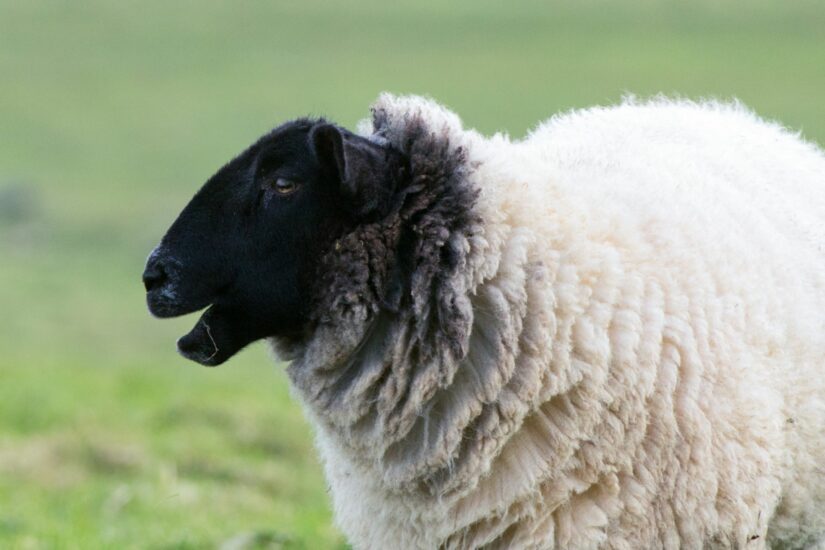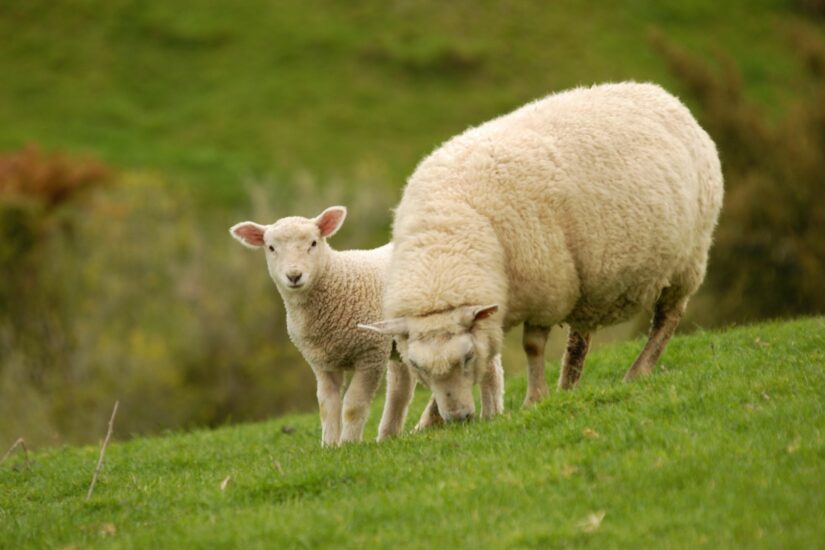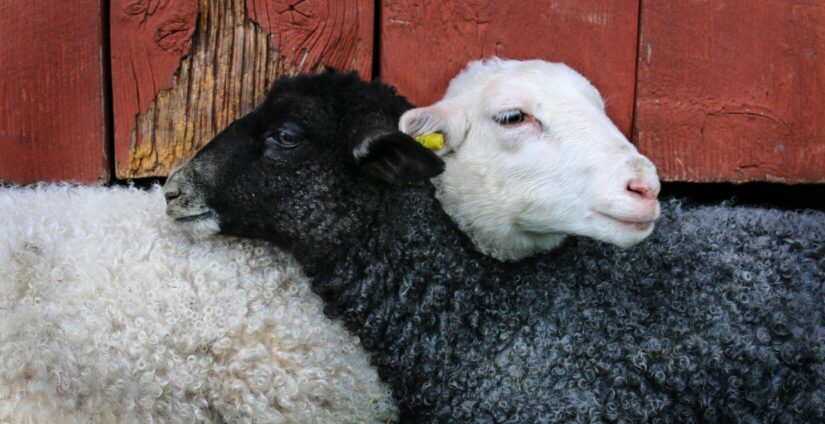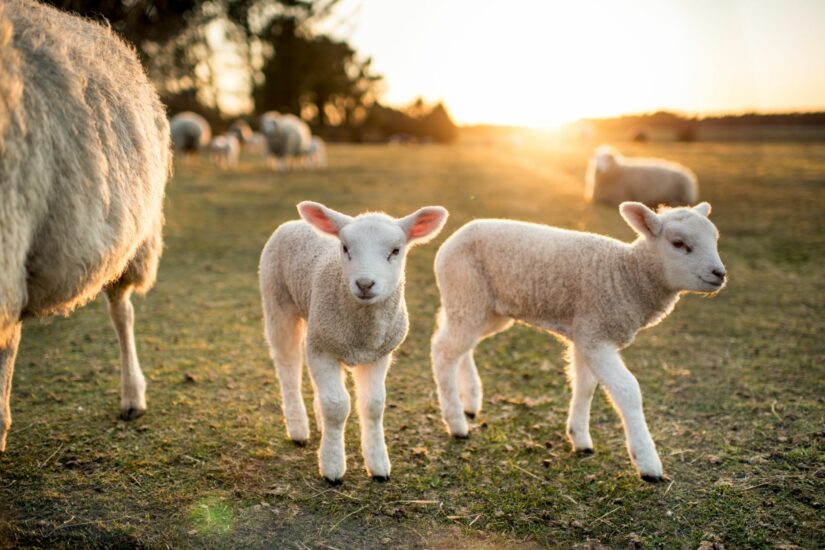Sheep were among the first animals to be domesticated. In Canada, sheep are raised on farms for meat, milk, and wool production and cared for as companion animals on hobby farms.
While sheep may be thought of as unintelligent animals who mindlessly follow the flock, they are incredibly smart. Here are ten fun facts you may not know about these farmed animals – you’ll have to read to baa-lieve them!
1. Counting sheep? There are hundreds of different breeds!
There are over 1,200 breeds of domestic sheep. With all these different breeds, some unique characteristics exist. Some breeds of sheep, like the Hebridean, grow two, four, or even six horns! Racka sheep are unique because males and females have long, spiral-shaped horns. Najdi sheep have long, silky hair rather than curly wool like other sheep breeds.

2. Sheep have scent glands on their face and hooves
One way sheep communicate with each other and their surroundings is through their excellent sense of smell. Sheep have scent glands in front of their eyes and between the digits of their hooves that produce smelly secretions used to communicate with one another!
3. Sheep have rectangular pupils
Rectangular pupils allow for a wide field of vision, around 270 to 320 degrees. This means that sheep can see almost everything around them, except for what’s directly behind them, without turning their heads! As prey species, this helps sheep stay aware of their surroundings and watch for predators, even when their head is down grazing.

4. Sheep are clever animals
Research has shown that sheep can recognize up to 50 other sheep faces and remember them for two years. Sheep can even recognize these faces at different ages and from various angles. Sheep can also recognize human faces, such as their favourite caregivers. Other studies have shown that sheep can remember how to navigate complex mazes.
5. Mothers form strong bonds with their lambs
Adult females, called ewes, form strong emotional bonds with their lambs soon after birth. Ewes stay close to their young lambs and encourage following behaviour, which young lambs learn quickly. Another way sheep communicate with each other is through vocalizations, often called bleating. Ewes can recognize which lambs are theirs by the sound of their calls, and at just 12 hours old, lambs can also identify their mother through sight and by the sound of her call.

6. Sheep can self-medicate
Sheep are selective grazers and prefer eating vegetation near the soil surface. Their upper lip is divided by a distinct groove called a philtrum. The philtrum allows them to get close to the ground and select only the grasses and other vegetation they like – they learn to recognize plants by their taste! They use this ability to eat plants that make them feel better when they are sick or prevent disease, but otherwise hold no nutritional value, and teach their young to do the same.
7. Sheep are emotionally complex
Sheep experience a wide range of emotions, just as humans do. Many studies have highlighted the ability of sheep to feel afraid, angry, bored, sad, and happy. Not only can sheep feel basic emotions, but their feelings can be very complex. For example, scientific studies have shown that sheep can display optimism, pessimism, and empathy! Sheep are sensitive to emotional expressions and can recognize emotion in the facial expressions of their flock mates – an important skill to keep the flock safe.

8. Sheep have ewe-nique personalities
While sheep in a flock may all look the same at first glance, they each have a unique personality! Some of the personality traits that have been identified in sheep are shyness and boldness. Some sheep may be bold and adventurous, while others may be more cautious and shy.
9. Sheep are highly social animals
A group of sheep is called a flock, but sheep do not remain in flocks simply for protection from predators. Sheep form strong bonds with one another. Social bonds are so important to sheep that they prefer to stay with their social group rather than graze at a distance – even for highly desired food! Sheep forced to live in isolation experience distress.
10. Lambs have play dates
Just as our pets may have play dates with others, so do sheep! After about the first week of life, lambs form play groups. Play behaviours in lambs and sheep are well documented, including bucking, spinning, and running around. These behaviours indicate that sheep, like most other animals, express positive emotions when they have the space and freedom to interact with one another.

So, the next time you see sheep grazing in a field, remember that there’s more to these woolly animals than meets the eye. They’re intelligent, social, and complex animals deserving of our care and respect.
Additional resources
Subscribe to FarmSense!
Want to learn more about farm animals? FarmSense e-newsletter is delivered four times per year straight to your inbox and includes news about farm animal welfare and actions you can take to help improve their lives.
The BC SPCA uses your personal information to update you on our work for animals as well as for advertising and analytics purposes. More information on uses and how to opt-out can be found in our Privacy Policy.
